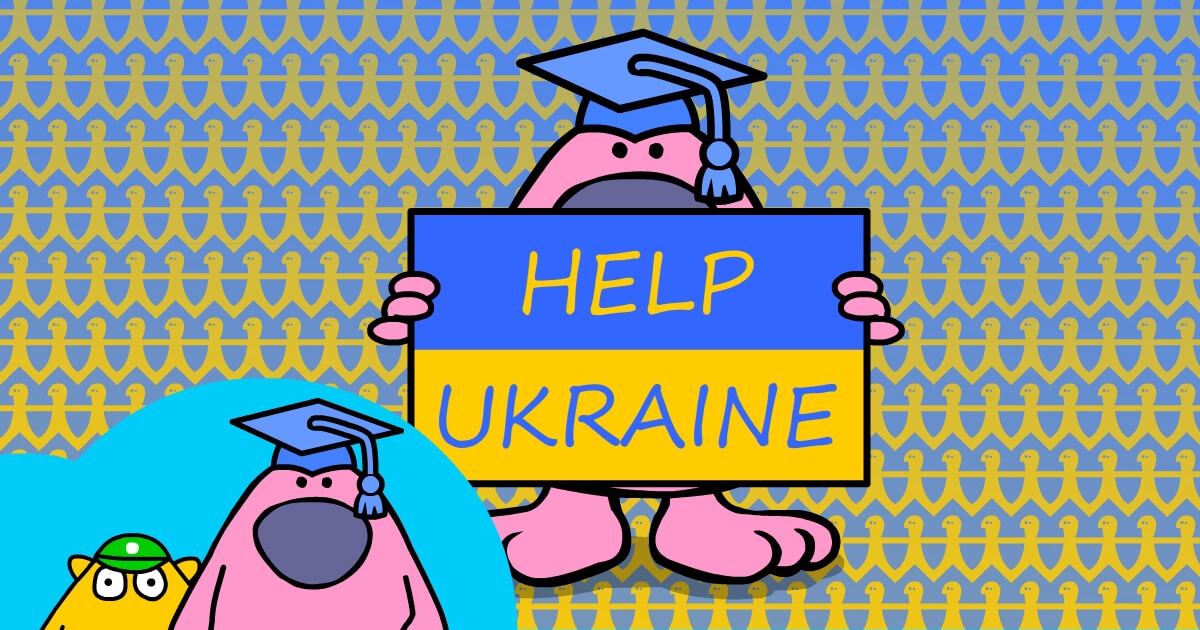How to Talk to Your Pupils About the Ukrainian Invasion

It would seem that the unprecedented times that started with the COVID-19 outbreak in March 2020 are with us to stay as we move from the grips of the pandemic to the Russian invasion of Ukraine. Both topics can cause children to worry. Will the events have an impact on them and people they care about? Are they safe? And this is especially true as adults may themselves be expressing uncertainty about the outcome. So, is it best to broach the subject with your pupils? Or protect them by carrying on as usual? The Department for Education has published some useful advice, knowing the unique position that schools hold in our society. It aims to help teachers deal with discussions and potential issues that they may never have encountered before.
Here we consider that advice, along with that given by other experts online:
Give information appropriate to the child, their age and maturity
Whether you talk about the events taking place in Ukraine depends to a large degree on the age of your pupils, and whether they are talking about it in the playground and classroom. If your pupils are younger than five, the general rule would be not to raise it unless they do. If pupils ask questions, however, respond in a way that they understand avoiding too much detail. This could be simply saying that one country is being really mean to another.
If the children are of school age and getting information (and misinformation) from a variety of sources, it makes sense to discuss the situation to validate what they’ve heard, normalise their feelings and provide reassurance.
Start with what your pupils have heard
Understanding what your pupils know about the situation already and where that information has been sourced from will give you a good starting point. It will help you find the right level, address any misinformation and explain that how they’re feeling is completely normal.
Talking about the situation will allow the children to express their feelings and concerns. This may well be difficult but will stand them in good stead when needing to talk about difficult subjects with adults in the future.
Respond calmly, address any misinformation and offer reassurance
Depending on what your pupils say, you can clarify the facts of the situation, recommend and access reliable sources and reassure them. Be mindful of the individuals within your setting though. If there are children of Ukrainian origin, they may have family that is directly affected. If there are children of Russian descent, they may see the situation completely differently for others. Discuss with a view to understanding, not judging, and make sure that no one child is left to stand up for any particular viewpoint. In discussions like these, there’s not always one right answer and just understanding different perspectives is enough. The children will feed off your emotions, so ensure you respond calmly and optimistically.
Don’t worry if you don’t have the answer to everything asked. Just as with COVID, we don’t know with any certainty how the situation will unfold. It’s good for children to understand that, as adults, we don’t have all the information either. Simply explain what you do know, admit what you don’t, and encourage them to find out the answers using reputable, age-appropriate information sources so you can talk about it further if necessary.
If pupils do express concern, it may help to show them where Ukraine is in comparison to the UK on a map and explain that people in power are taking action to support the Ukrainian people. If you feel particular children are becoming overwhelmed, it may be worth talking to their parents so that they can review their viewing habits.
Be compassionate
Helping the children understand how different groups of people involved in the situation could be feeling is useful to help the children develop empathy. Ultimately, the Russians and Ukrainians are people just like us and just want to live, work and learn in safety. No matter what your beliefs, you can imagine how upsetting it must be as a Ukrainian child to have to flee from your own home with just a few belongings.
Some children may respond by wanting to offer help, which is something to be positively encouraged. They could donate clothes to go to the Ukrainian border or raise funds to support humanitarian initiatives. Taking action can often empower individuals and help them deal with difficult situations.
Summary
We hope the combined advice we’ve gleaned from experts online has been helpful. We live in difficult times but when dealing with the war on Ukraine, it’s important to remember that this is not the first generation to deal with uncertainty and conflict. The main difference for the pupils of today is how they receive news about the outside world and the misinformation that is part of that. As such, teaching them how to validate information, see it in perspective, and if necessary turn it off, is vital.